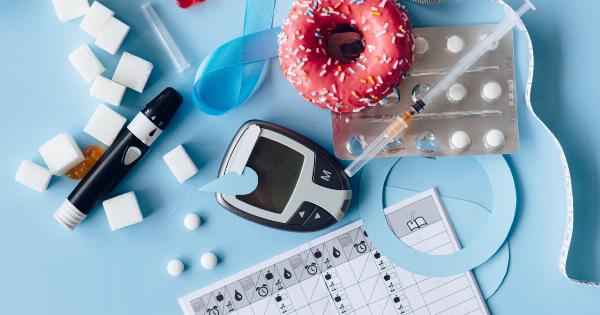Gastroesophageal reflux disease, or GERD, is a chronic digestive disorder that affects the lower esophageal sphincter.
It is characterized by the backward flow of stomach acid into the esophagus, causing a range of uncomfortable symptoms, such as heartburn, regurgitation, and difficulty swallowing. GERD can be caused by multiple factors and understanding the primary causes can help prevent the onset of this condition.
1. Poor Diet
One of the most common causes of GERD is an unhealthy diet. Consuming large amounts of fatty, spicy, and acidic foods can irritate the lining of the esophagus and lead to acid reflux.
Additionally, consuming large meals or eating too quickly can put pressure on the stomach and cause the contents to back up into the esophagus. Eating a balanced and healthy diet can help to reduce the risk of developing GERD.
2. Obesity
Obesity is another common cause of GERD. Excess weight, particularly around the abdomen, can put pressure on the stomach and increase the likelihood of acid reflux.
Losing weight through a combination of diet and exercise can help to reduce the symptoms of GERD.
3. Smoking
Smoking is another factor that can increase the risk of developing GERD. Research has shown that smokers are more likely to experience acid reflux than non-smokers.
Smoking can also weaken the lower esophageal sphincter, making it easier for stomach acid to flow into the esophagus. Quitting smoking can help to reduce the symptoms of GERD.
4. Hiatal Hernia
A hiatal hernia is a condition in which part of the stomach bulges through the diaphragm and into the chest cavity. This can weaken the lower esophageal sphincter, making it easier for stomach acid to flow into the esophagus.
Hiatal hernias can be diagnosed through imaging tests and may require surgery to correct.
5. Pregnancy
Pregnancy can also increase the risk of developing GERD. As the uterus expands, it can put pressure on the stomach and diaphragm, making it easier for stomach acid to reflux into the esophagus.
Additionally, the hormones produced during pregnancy can relax the lower esophageal sphincter, making it easier for stomach acid to flow into the esophagus. Eating small, frequent meals and avoiding lying down after meals can help to reduce the symptoms of GERD during pregnancy.
6. Certain Medications
GERD can also be caused by certain medications. Some drugs, such as aspirin and ibuprofen, can irritate the lining of the esophagus and increase the risk of acid reflux.
Additionally, some medications used to treat high blood pressure, asthma, and anxiety can relax the lower esophageal sphincter, making it easier for stomach acid to flow into the esophagus. If you are experiencing symptoms of GERD, talk to your doctor about any medications you are taking.
7. Asthma
Research has shown that there is a link between asthma and GERD. Asthma and GERD often coexist, and one condition can exacerbate the other.
The exact relationship between the two conditions is still being studied, but it is thought that the acid reflux associated with GERD can trigger asthma symptoms. Treating both conditions can help to reduce symptoms and improve quality of life.
8. Stress
Stress can also play a role in the development of GERD. When the body is stressed, it produces more acid than usual, which can irritate the lining of the esophagus and lead to acid reflux.
Additionally, stress can cause changes in eating habits that may increase the risk of GERD. Practicing stress-reducing techniques, such as meditation and yoga, can help to reduce the symptoms of GERD.
9. Alcohol
Excessive alcohol consumption can also increase the risk of developing GERD. Alcohol can irritate the lining of the esophagus and increase the amount of acid produced in the stomach, making it easier for acid to flow into the esophagus.
Drinking alcohol in moderation can help to reduce the risk of GERD.
10. Genetics
Finally, genetics may play a role in the development of GERD. Research has shown that there is a genetic component to the condition, with some individuals being more prone to acid reflux than others.
If you have a family history of GERD, it is important to be aware of the symptoms and take steps to reduce the risk of developing the condition.
Conclusion
GERD is a common condition that can cause a range of uncomfortable symptoms. By understanding the top causes of GERD, individuals can take steps to reduce their risk of developing the condition.
Eating a healthy diet, maintaining a healthy weight, quitting smoking, and reducing stress can all help to reduce the symptoms of GERD. If you are experiencing symptoms of GERD, talk to your doctor about treatment options.































